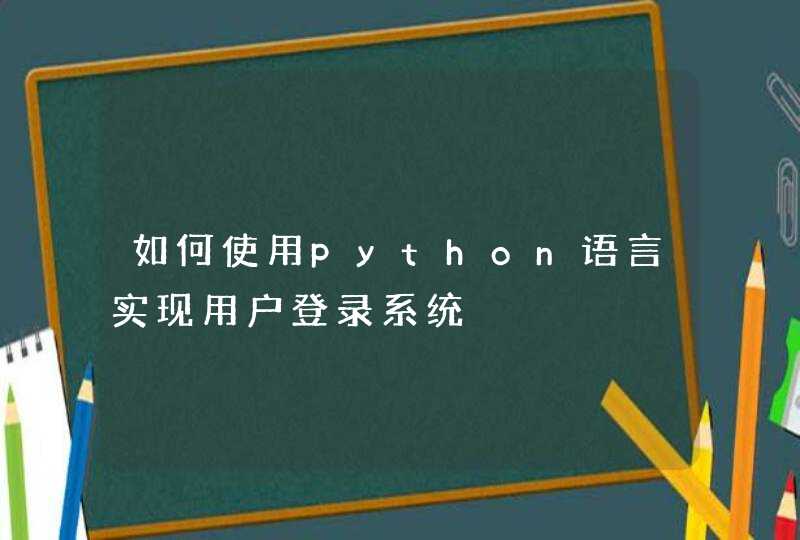
代码如下:
/* tcpportping.c */
#include <Python.h>
#include <string.h>
#include <sys/types.h>
#include <sys/socket.h>
#include <netinet/in.h>
#include <netdb.h>
#include <sys/time.h>
/* count time functions */
static double mytime(void)
{
struct timeval tv
if (gettimeofday(&tv, NULL) == -1)
return 0.0
return (double)tv.tv_usec + (double)tv.tv_sec * 1000000
}
static PyObject * /* returns object */
tcpping(PyObject *self, PyObject *args )
{
struct sockaddr_in addr
struct hostent *hp
double time
char*host = NULL
int fd
int port, timeout
if (!PyArg_ParseTuple(args, "sii", &host, &port, &timeout)) /* convert Python ->C */
return NULL /* null=raise exception */
if ((fd = socket(AF_INET, SOCK_STREAM, 0)) <0) {
return Py_BuildValue("d", -1.0) /* convert C ->Python */
}
bzero((char *)&addr, sizeof(addr))
if ((hp = gethostbyname(host)) == NULL) {
return Py_BuildValue("d", -2.0) /* convert C ->Python */
}
bcopy(hp->h_addr, &addr.sin_addr, hp->h_length)
addr.sin_family = AF_INET
addr.sin_port = htons(port)
struct timeval tv
tv.tv_sec = 0
tv.tv_usec = timeout * 1000
double stime = mytime()
if (connect(fd, (struct sockaddr*)&addr, sizeof(addr)) <0) {
return Py_BuildValue("d", -3.0) /* convert C ->Python */
}
fd_set read, write
FD_ZERO(&read)
FD_ZERO(&write)
FD_SET(fd, &read)
FD_SET(fd, &write)
if (select(fd + 1, &read, &write, NULL, &tv) == 0) {
close(fd)
return Py_BuildValue("d", -4.0) /* convert C ->Python */
}
double etime = mytime()
time = etime - stime
if (!FD_ISSET(fd, &read) &&!FD_ISSET(fd, &write)) {
close(fd)
return Py_BuildValue("d", -4.0) /* convert C ->Python */
}
close(fd)
return Py_BuildValue("d", time/1000) /* convert C ->Python */
}
/* registration table */
static struct PyMethodDef portping_methods[] = {
{"tcpping", tcpping, METH_VARARGS}, /* method name, C func ptr, always-tuple */
{NULL, NULL} /* end of table marker */
}
/* module initializer */
void inittcpportping( ) /* called on first import */
{ /* name matters if loaded dynamically */
(void) Py_InitModule("tcpportping", portping_methods) /* mod name, table ptr */
}
二、Python调用C/C++\x0d\x0a\x0d\x0a\x0d\x0a1、Python调用C动态链接库\x0d\x0a\x0d\x0aPython调用C库比较简单,不经过任何封装打包成so,再使用python的ctypes调用即可。\x0d\x0a(1)C语言文件:pycall.c\x0d\x0a\x0d\x0a[html] view plain copy \x0d\x0a/***gcc -o libpycall.so -shared -fPIC pycall.c*/ \x0d\x0a#include \x0d\x0a#include \x0d\x0aint foo(int a, int b) \x0d\x0a{ \x0d\x0a printf("you input %d and %d\n", a, b) \x0d\x0a return a+b \x0d\x0a} \x0d\x0a(2)gcc编译生成动态库libpycall.so:gcc -o libpycall.so -shared -fPIC pycall.c。使用g++编译生成C动态库的代码中的函数或者方法时,需要使用extern "C"来进行编译。\x0d\x0a(3)Python调用动态库的文件:pycall.py\x0d\x0a\x0d\x0a[html] view plain copy \x0d\x0aimport ctypes \x0d\x0all = ctypes.cdll.LoadLibrary \x0d\x0alib = ll("./libpycall.so")\x0d\x0alib.foo(1, 3) \x0d\x0aprint '***finish***' \x0d\x0a(4)运行结果:\x0d\x0a\x0d\x0a\x0d\x0a2、Python调用C++(类)动态链接库 \x0d\x0a\x0d\x0a 需要extern "C"来辅助,也就是说还是只能调用C函数,不能直接调用方法,但是能解析C++方法。不是用extern "C",构建后的动态链接库没有这些函数的符号表。\x0d\x0a(1)C++类文件:pycallclass.cpp\x0d\x0a\x0d\x0a[html] view plain copy \x0d\x0a#include \x0d\x0ausing namespace std \x0d\x0a \x0d\x0aclass TestLib \x0d\x0a{ \x0d\x0apublic: \x0d\x0avoid display() \x0d\x0avoid display(int a) \x0d\x0a} \x0d\x0avoid TestLib::display() { \x0d\x0acout \x0d\x0ausing namespace std \x0d\x0aint test() \x0d\x0a{ \x0d\x0aint a = 10, b = 5 \x0d\x0areturn a+b \x0d\x0a} \x0d\x0aint main() \x0d\x0a{ \x0d\x0acout \x0d\x0a#include \x0d\x0a#include \x0d\x0a \x0d\x0aint fac(int n) \x0d\x0a{ \x0d\x0aif (n 回答于 2022-11-16



































































